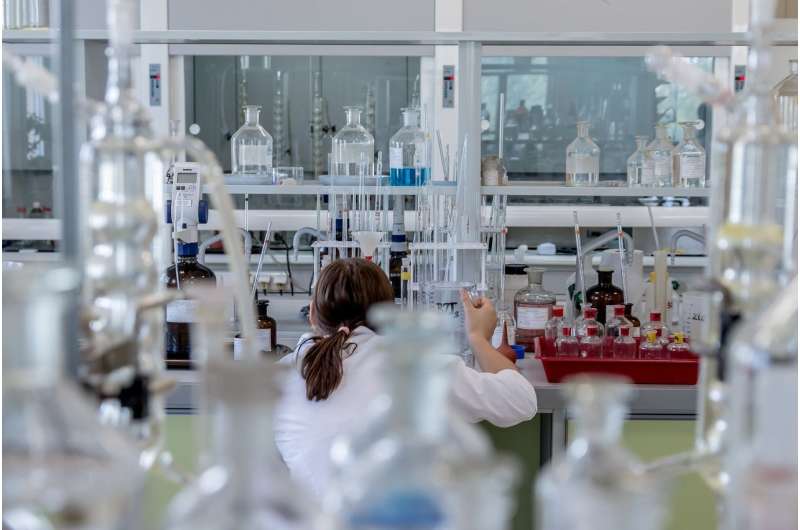Credit: CC0 Public Domain
Cardiff University scientists have devised a new way of making reactions up to 70 times faster by using state-of-the-art equipment to spin chemicals around.
They found that efficient mixing within a chemical reaction could be achieved by spinning chemicals and catalysts around in a small tube, causing the reactions to happen much quicker.
The new findings could have a profound influence on the way that chemicals are made in a wide variety of industries, from drug development to agriculture and fragrances.
The results of the study have been published in the leading journal Angewandte Chemie.
They have led to the award of a major research grant from the Biotechnology and Biological Sciences Research Council allowing the research team to expand on their discoveries in collaboration with industry.
The idea is based on flow chemistry, in which chemical reactions take place continuously in a flowing stream of liquid within a tube or a pipe, as opposed to more traditional "batch production" methods when chemicals are added into a vessel such as a flask and the product is then collected.
Flow chemistry is changing the way chemical reactions are performed, providing safer, faster reactions, and cleaner products.
The addition of catalysts into a flow system can improve the reaction, but the team from the School of Chemistry have been searching for ways to improve the mixing of chemicals without comprising on factors such as reactivity and selectivity.
In their study, Professor Rudolf Allemann and Professor Thomas Wirth investigated a method known as high-performance counter current chromatography (HPCCC) in which chemicals and catalysts are spun around in a small tube.
Their results showed that chemical reactions could be performed up to 70 times faster using this spinning technique.
Commenting on the findings, Professor Wirth said: "The novel use of an HPCCC machine for super-efficient mixing is very exciting. We can now speed up reactions through rapid mixing and get fast access to important chemical compounds. As big versions of these machines exist, the industrial use of the effects unraveled by our research groups is within reach."
More information: Florence Huynh et al. Accelerating biphasic biocatalysis through new process windows, Angewandte Chemie International Edition (2020). DOI: 10.1002/anie.202005183
Journal information: Angewandte Chemie , Angewandte Chemie International Edition
Provided by Cardiff University
























